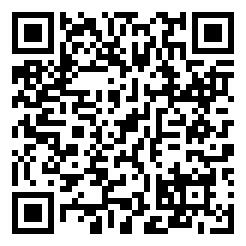我們的服務符合學術規范和道德
專業 高端讓您使用時沒有后顧之憂
我們的服務符合學術規范和道德
專業 高端讓您使用時沒有后顧之憂
 投稿咨詢
投稿咨詢
《技術物理學》是一本包含應用物理學各方面實用信息的期刊,特別是儀器和測量技術。重點研究等離子體物理及其相關領域,如電磁場中帶電粒子的研究、同步輻射、電子束和離子束、氣體激光器和放電等。其他的期刊主題是凝聚態的性質,包括半導體、超導體、氣體、液體和不同的材料。同行評審《技術物理學》是一本同行評議期刊。我們使用單一的盲同行評審格式。我們的評審團隊包括來自5個國家的130多名國內外評審人員(95%)。2017年從提交到首次評審的平均周期為50天,從首次評審到驗收的平均周期為40天。2017年投稿退稿率為20%。接受發表的文章,由總編或者副總編、欄目編輯作出最后決定。被邀請的審稿人因利益沖突,認為不符合審稿條件或者不能審稿的,應當及時通知審稿人,并予以拒絕。審稿人應以一種合理合理的方式清晰地闡述自己的觀點,這樣作者才能利用審稿人的觀點來完善稿件。必須避免對作者的個人批評。評論者應該顯示發表的一篇評論(我)任何相關的工作沒有被引用的作者,(2)任何已報道在以前的出版物和沒有適當的參考或引用,(2)任何實質性相似或重疊與其他手稿(發表或未發表)的個人知識。
Technical Physics is a journal that contains practical information on all aspects of applied physics, especially instrumentation and measurement techniques. Particular emphasis is put on plasma physics and related fields such as studies of charged particles in electromagnetic fields, synchrotron radiation, electron and ion beams, gas lasers and discharges. Other journal topics are the properties of condensed matter, including semiconductors, superconductors, gases, liquids, and different materials.PEER REVIEWTechnical Physics is a peer reviewed journal. We use a single blind peer review format. Our team of reviewers includes over 130 reviewers, both internal and external (95%), from 5 countries. The average period from submission to first decision in 2017 was 50 days, and that from first decision to acceptance was 40 days. The rejection rate for submitted manuscripts in 2017 was 20%. The final decision on the acceptance of an article for publication is made by the Editor-in-Chief or the Deputy Editor-in-Chief or the Section Editor.Any invited reviewer who feels unqualified or unable to review the manuscript due to the conflict of interests should promptly notify the editors and decline the invitation. Reviewers should formulate their statements clearly in a sound and reasoned way so that authors can use reviewer’s arguments to improve the manuscript. Personal criticism of the authors must be avoided. Reviewers should indicate in a review (i) any relevant published work that has not been cited by the authors, (ii) anything that has been reported in previous publications and not given appropriate reference or citation, (ii) any substantial similarity or overlap with any other manuscript (published or unpublished) of which they have personal knowledge.
* 請認真填寫需求信息,學術顧問24小時內與您取得聯系。